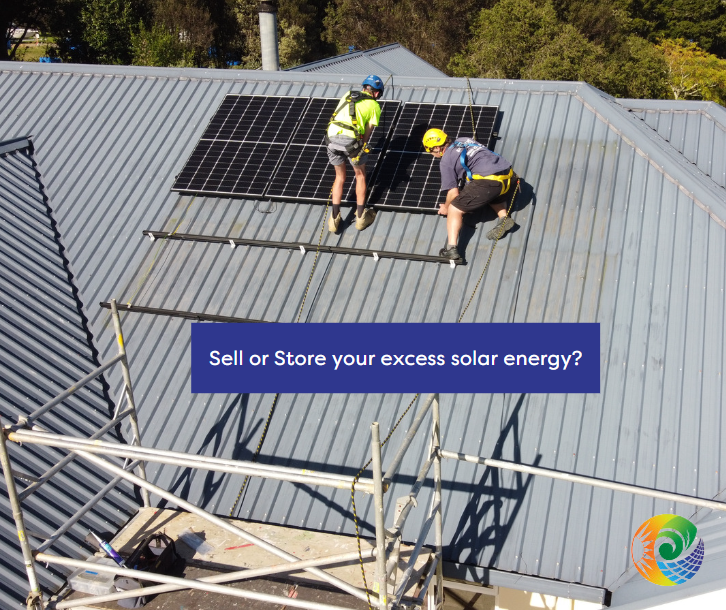Excess solar – sell or store?
June 16, 2023
Solar power is becoming an increasingly popular choice for homeowners and businesses looking to reduce their energy bills and carbon footprint. One of the key benefits of solar power is the ability to generate your own electricity and even sell any excess energy back to the local power network. Another option is to store the excess energy in batteries for later use. But which option is best for you? Let’s take a closer look at the benefits and differences of each.
Selling Excess Solar Energy Back to the Local Power Network
When your solar system generates more electricity than you’re using, the excess energy flows back into the local power network. You may be able to sell this excess energy back to your electricity retailer and receive it as a credit on your power bill or as separate passive income. This is known as net metering or feed-in tariffs.
Benefits:
- No need to invest in batteries, which can be expensive and require maintenance.
- You can earn credits or passive income from the excess energy you generate, which can help offset the cost of your solar system and reduce your energy bills.
- You don’t have to worry about running out of stored energy, as you’re always connected to the grid.
Disadvantages:
- You’re reliant on the grid for power when your solar system isn’t generating enough energy, such as at night or during cloudy days.
- The buy-back rate you receive for excess energy may vary depending on your electricity retailer and location.
Storing Excess Solar Energy in Batteries
Another option is to store the excess energy generated by your solar system in batteries for later use. This can be particularly useful for homes or businesses that use more energy during the evening or night, when solar power isn’t being generated. Batteries can also provide backup power during outages or emergencies.
Benefits:
- You can use the stored energy during times when your solar system isn’t generating enough energy, which can help reduce your reliance on the grid and lower your energy bills.
- Batteries can provide backup power during outages or emergencies, which can be particularly useful in areas with unreliable grid power.
- You have more control over how you use your energy, as you’re not reliant on the grid for power.
Disadvantages:
- Batteries can be expensive to install and maintain, which can increase the overall cost of your solar system.
- You need to ensure you have enough battery storage capacity to meet your energy needs, which can require careful planning and monitoring.
- Depending on your battery, these can have a cycle life of up to 10,000 cycles and will need to be replaced in 10-15yrs.
In summary, both selling excess solar energy back to the local power network and storing excess solar energy in batteries have their benefits and differences. The option that’s best for you will depend on your energy needs, location, and budget. If you’re looking to reduce your reliance on the grid and lower your energy bills, selling excess solar energy back to the local power network may be a good option. However, if you’re looking for more control over your energy usage and want backup power during outages or emergencies, storing excess solar energy in batteries may be a better fit. It’s important to carefully consider your options and work with a reputable solar installer, like us, to determine the best solution for your specific situation.
Get in touch with us to help with your solar power needs.

